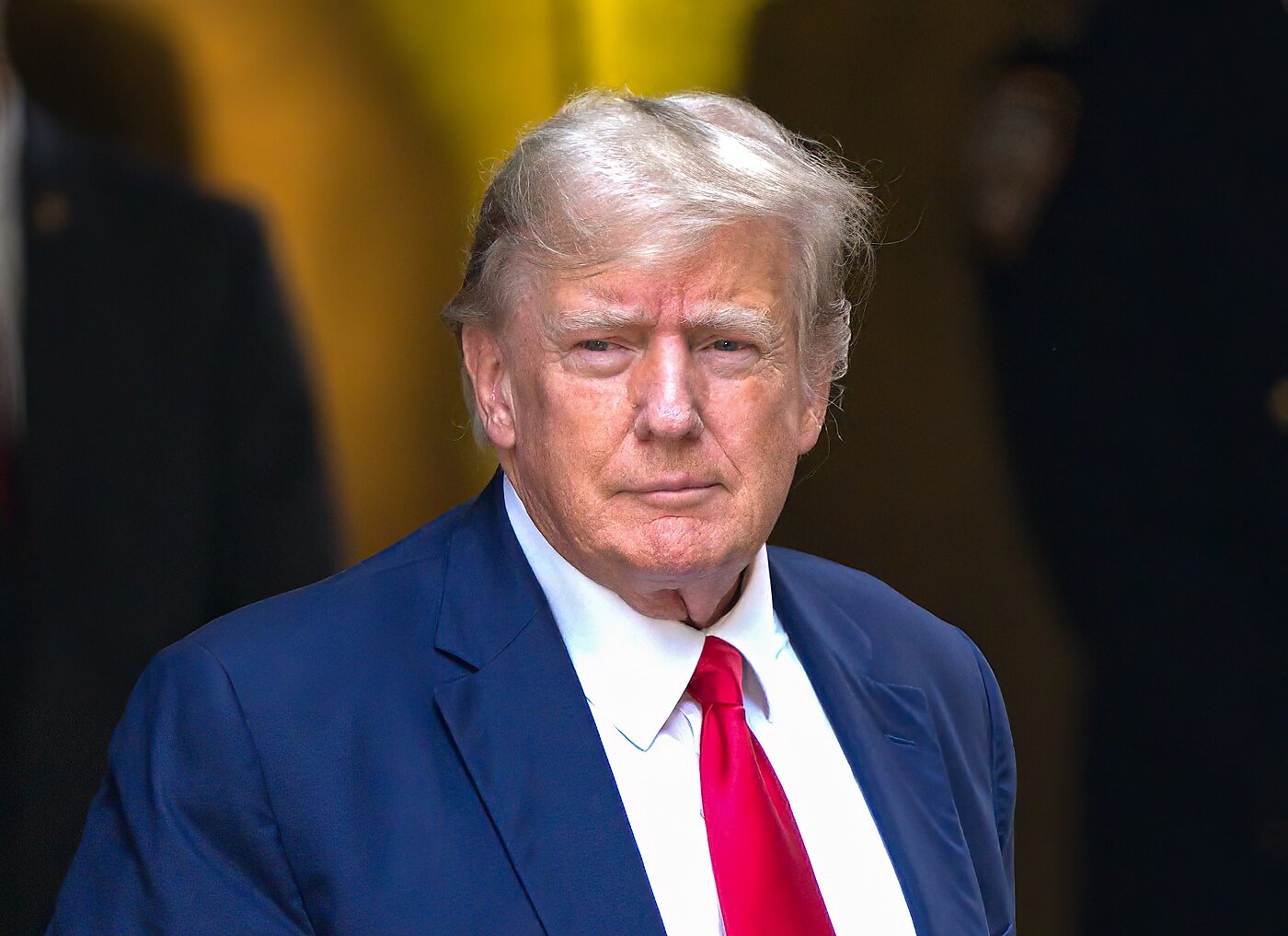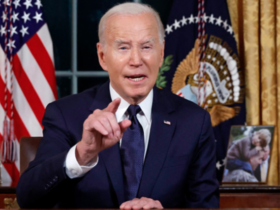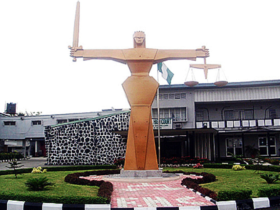The US Supreme Court said Friday it will review the Colorado Supreme Court’s unprecedented decision removing former President Donald Trump from that state’s ballot.
The court scheduled oral arguments for February 8.
Trump remains on the primary ballot as the lower-court ruling disqualifying him has been put on hold pending Supreme Court action. If the justices do conclude Trump is ineligible for public office, then any votes cast for him wouldn’t count.
The high court’s decision to hear the case puts the nine justices squarely in the middle of the 2024 election as voting starts in the early primary contests and represents the court’s most significant involvement in a presidential race since its highly consequential decision 23 years ago in Bush v. Gore.
The state court’s ruling last month all but ensured that the justices would have to take up the politically fraught case and resolve the controversial question of whether Trump can be removed from the ballot. Though the Colorado ruling applies only to that state, courts in several other states have also reviewed challenges to Trump’s eligibility, though no such case has made it as far as the one in Colorado.
Last week, Maine’s secretary of state removed Trump from that state’s 2024 primary ballot, and the former president’s team on Tuesday appealed that decision in state court. The Oregon Supreme Court could also soon rule on a bid to remove Trump from that state’s primary and general election ballots because of his role in the January 6, 2021, insurrection, underscoring an urgent need for the justices in Washington to act quickly in the Colorado case.
Trump’s campaign said it welcomes a “fair hearing” at the Supreme Court over the Colorado ballot challenge.
“The so-called ‘ballot-challenge cases’ are all part of a well-funded effort by left-wing, political activists hell-bent on stopping the lawful reelection of President Trump this November, even if it means disenfranchising voters,” campaign spokesman Steven Cheung said in a statement. “We are confident that the fair-minded Supreme Court will unanimously affirm the civil rights of President Trump, and the voting rights of all Americans.”
Sean Grimsley, attorney for the petitioners challenging Trump’s eligibility who also asked the Supreme Court to hear the case, told CNN on Friday evening that he’s “thankful” for the high court’s decision.
“We’re also gratified the court is setting it on an expedited schedule,” Grimsley told CNN’s Erica Hill on “Erin Burnett OutFront,” adding that he expects the justices to decide the issue well before the state’s primary on March 5.
The Colorado decision has been on pause pending the US Supreme Court’s resolution of the case, and the state’s top election official on Friday certified the 2024 presidential primary ballots with Trump’s name on the Republican ballot. Should the justices conclude Trump is ineligible for public office before Colorado’s primary, then any votes cast for him wouldn’t count.
Trump appealed the Colorado decision to the US Supreme Court on Wednesday, a week after the state’s Republican Party also asked the justices to hear the case. The stunning 4-3 decision last month said Trump is constitutionally ineligible to run in 2024 because the 14th Amendment’s ban on insurrectionists holding office covers his conduct on January 6, 2021.
“In our system of ‘government of the people, by the people, [and] for the people,’ Colorado’s ruling is not and cannot be correct,” attorneys for the former president wrote in their petition to the court.
“The Colorado Supreme Court erred in how it described President Trump’s role in the events of January 6, 2021,” they argued in the filing. “It was not ‘insurrection’ and President Trump in no way ‘engaged’ in ‘insurrection.’”
Expedited schedule
The court set an extraordinarily fast schedule to hear the Trump ballot dispute.
Trump is set to file his opening brief in the case by January 18. The Colorado voters challenging his eligibility for office will file their opening arguments by January 31.
This timeline compresses the normal briefing schedule to one-third of its typical length, underscoring how quickly the justices are choosing to move.
Per the court’s usual practice in these kinds of cases, the order does not say how individual justices voted.
Thomas doesn’t recuse himself from court’s decision
Justice Clarence Thomas did not immediately recuse himself from the case, something he was facing pressure to do from House Democrats who had seized on his wife’s conservative activism and efforts to reverse the 2020 election results.
In a letter sent by eight Democrats on Thursday to Thomas, the lawmakers argue his wife, Virginia “Ginni” Thomas’ role in the January 6 “Stop the Steal” rally that she attended make it “unthinkable” the conservative justice could be impartial in deciding whether the event constituted an insurrection.
“There is no evidence that her views about the 2020 election have softened, and it is unreasonable to conclude your wife’s fervent views do not bleed over to and affect your opinions, and affect your ability to be impartial in a case about Mr. Trump’s efforts to prevent the orderly transition of power,” the lawmakers wrote in the letter.
Grimsley, the plaintiffs’ attorney, told CNN they have no plans to ask Thomas to recuse himself.
“I suppose if something came out that we’re unaware of we might change our mind, but at this point we do not plan to seek recusal,” he said Friday.
Thomas or any other justice could recuse themselves at a later point.
CNN has reached out to the Supreme Court for comment on the Democrats’ recusal request.
Trump said Friday night that he hopes the three justices he appointed to the Supreme Court – Neil Gorsuch, Brett Kavanaugh and Amy Coney Barrett – would be “fair.”
“All I want is fair,” Trump said at a campaign event in Sioux Center, Iowa. “I fought really hard to get three very, very good people in. They’re great people, very smart people.”












Leave a Reply